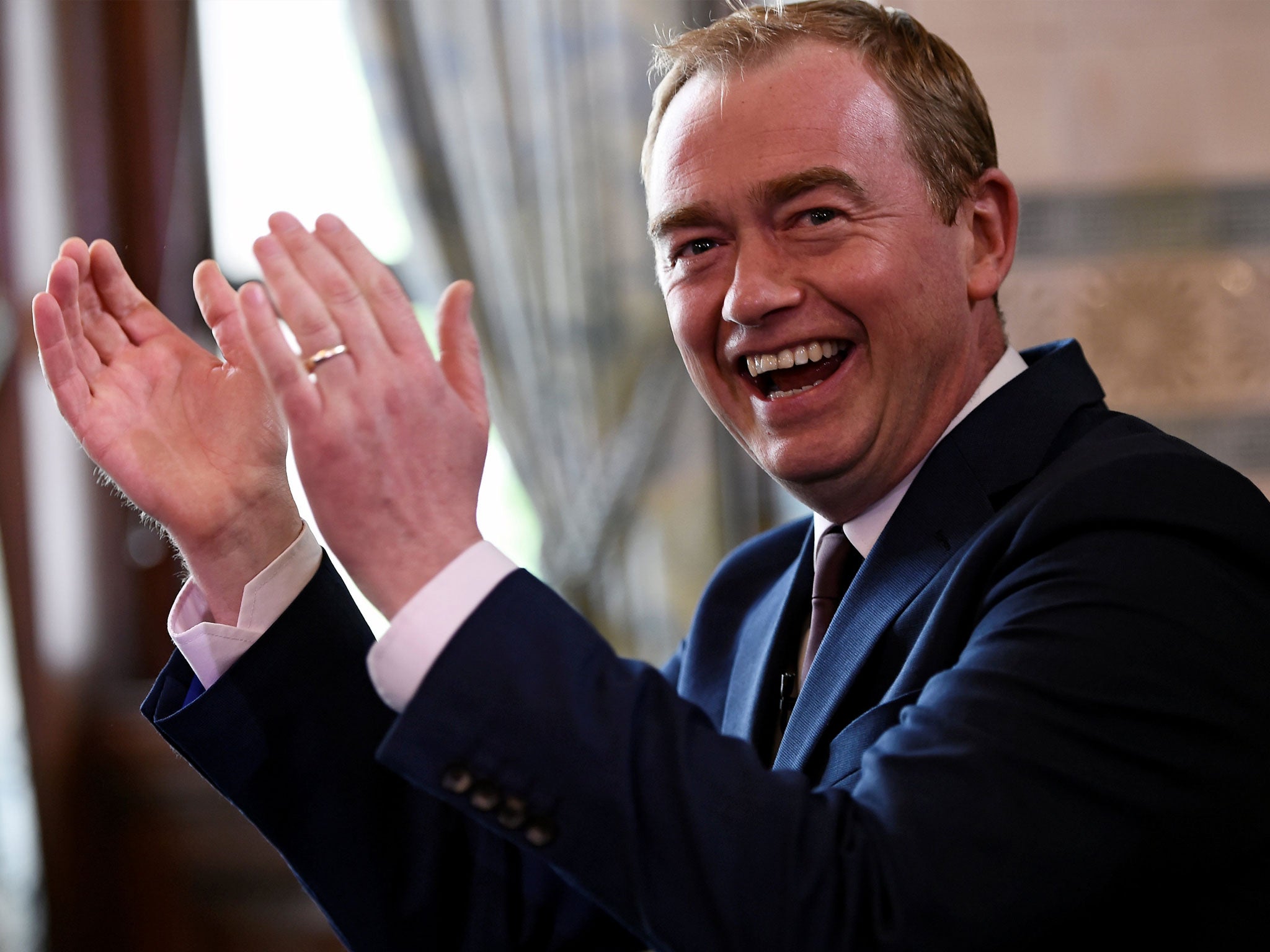As a Muslim and a liberal, I was sad to hear Tim Farron say his religion and his Lib Dem leadership didn't mix
That Tim Farron has a personal Christian faith is something I admire, because liberalism, at its core, means that you should have the choice to believe in as much or as little as you want

Seeing Tim Farron’s resignation email pop up in my inbox yesterday was not the biggest surprise, but its reasoning was – and it made me shudder.
People always complain about politicians not being themselves, so it seems slightly ironic that Farron is stepping down seemingly because he was too true to himself during the general election. But did Lib Dem members themselves (LGBT members included) ask questions about Farron’s beliefs? Not really.
You’ll notice that almost all of the questions sent his way were from outside of the party, because inside, it really isn’t a problem to have a different view to the person next to you. In his resignation statement, Farron is right to state that “we are kidding ourselves if we think we yet live in a tolerant, liberal society”. Are we becoming intolerant about faith? Perhaps. And if a white, Christian male is perceived in such a way and ultimately pushed out of politics because of it, what chance do minorities have?
People of faith might think that their values can’t coincide with liberal values. But the truth is that liberalism is the most likely to uphold their right to practise any faith. As someone who defines themselves as both Muslim and liberal, I believe that our freedoms extend to anything as long as they don’t violate the freedoms of others.

As far as I’m concerned, for example, you can wear whatever you want: face veil, miniskirt, burkini, bikini. It really is your own choice. In fact, this shows in the Lib Dem manifesto, which was the only one of the main three to mention upholding the freedom to wear cultural and religious dress.
Disagreements and varying opinions are accommodated for in my faith tradition. For example, the Quran couldn’t be clearer when it says that “there is no compulsion in religion”. According to biographical accounts, Mohammed’s companions interpreted his commands in different ways, but despite disagreement, he would say that neither group was wrong.
The maxim attributed to al-Shafi’i, one of the most important Islamic jurists, states that “my opinion is right but might be wrong, and the opinions of others are wrong but might be right”. At the core of both liberalism and faith is freedom of opinion, as well as a recognition of individual sovereignty. This week it was confirmed that the media and public denied Farron his right to these.

Individual sovereignty is the reason that the Lib Dems want to defend the privacy of citizens (including regulated surveillance powers and scrapping the Prevent programme). This sovereignty also promotes empowerment, not centralisation that takes power out of our hands as individuals (which is why proportional representation has always been at the top of any Lib Dem manifesto).
At the heart of this is an optimism that extends to grassroots change and devolution: if we empower people and give them the ability to make decisions, citizens will make society better. It trusts people as individuals and as a collective. Farron had his individual opinions, to which he is entitled, and they did not stop the Lib Dems, as a collective, from helping to create the country’s most historic breakthrough for same-sex couples.
As Britons, we should be celebrating the freedom we have to believe in whatever we wish – even if you are party leader. That Tim Farron has a personal Christian faith is something I admire, because liberalism, at its core, means that you should have the choice to believe in as much or as little as you want. Unlike the media’s treatment of him, it is about respecting the beliefs of those around you, whether you agree with them or not.
Join our commenting forum
Join thought-provoking conversations, follow other Independent readers and see their replies
Comments